Welcome to the city of Dublin, where the streets are steeped in history and tales of ghosts and ghouls. From haunted castles to eerie alleyways, there’s no shortage of spine-chilling stories to be heard. Whether you’re a believer in the paranormal or simply looking for a thrilling night out, Dublin’s ghost tours offer a unique perspective on the city’s past. But with so many spooky options to choose from, how do you know which tour to book? In this post, we’ll be exploring some of the best ghost tours in Dublin, each with its own unique twist on the city’s haunted history. So sit back, turn on your flashlight, and get ready for a night you won’t soon forget.
The 2 Best Ghost Tours in Dublin
The 2 Best Ghost Tours in Dublin
1. Gravedigger Ghost Tour
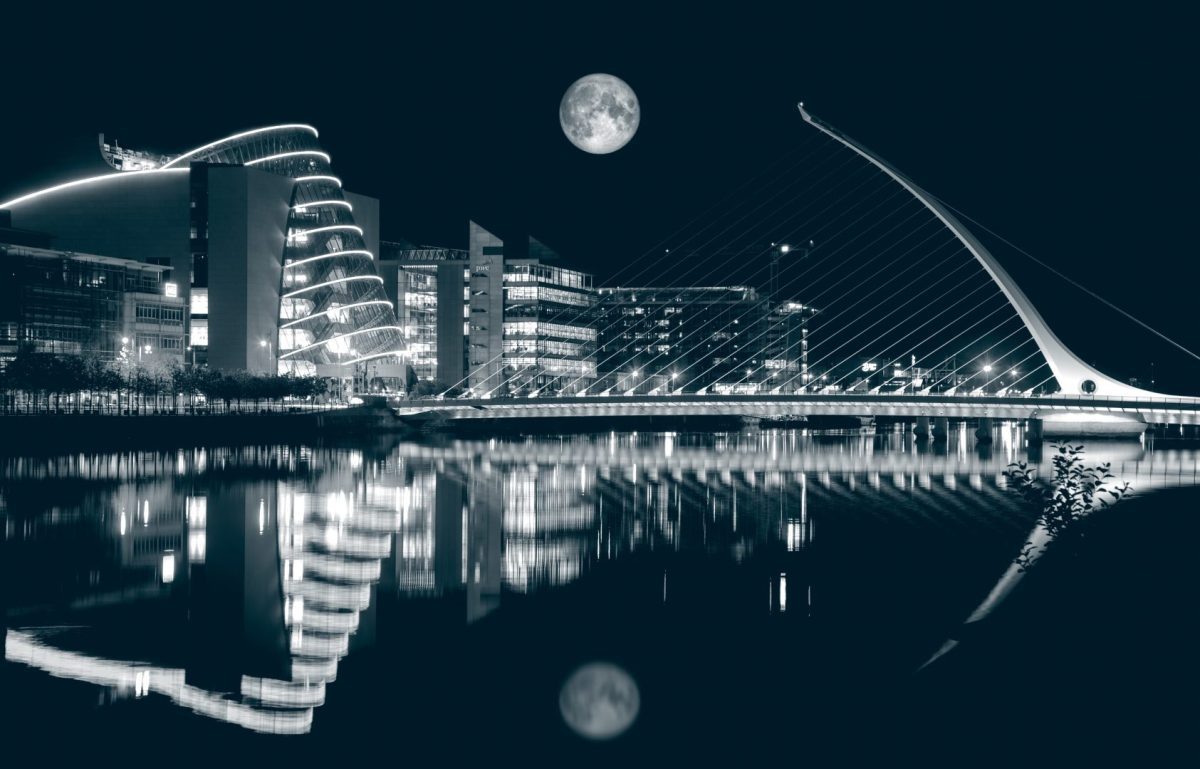
Delve into the darker side of Dublin’s haunted past on this spooky evening gravedigger ghost tour. Led by a local guide, explore the chilling Bully’s Acre cemetery, where watchmen reportedly witnessed gravediggers at work.
Learn about the devastating impact of the medieval plague, and hear how opportunistic gravediggers made their living by body snatching. Visit Kilmainham Jail and listen to eerie accounts of strange occurrences witnessed there.
Wrap up this bone-chilling tour with a ‘ghoulish brew’ at Gravediggers Pub. As a bonus, receive a free pass for the ‘Haunted Dublin Historical Walking Tour,’ to be taken separately. Don’t miss the chance to experience Ireland’s haunted history firsthand on this unforgettable tour.
2. Murder Mystery Game Trinity College
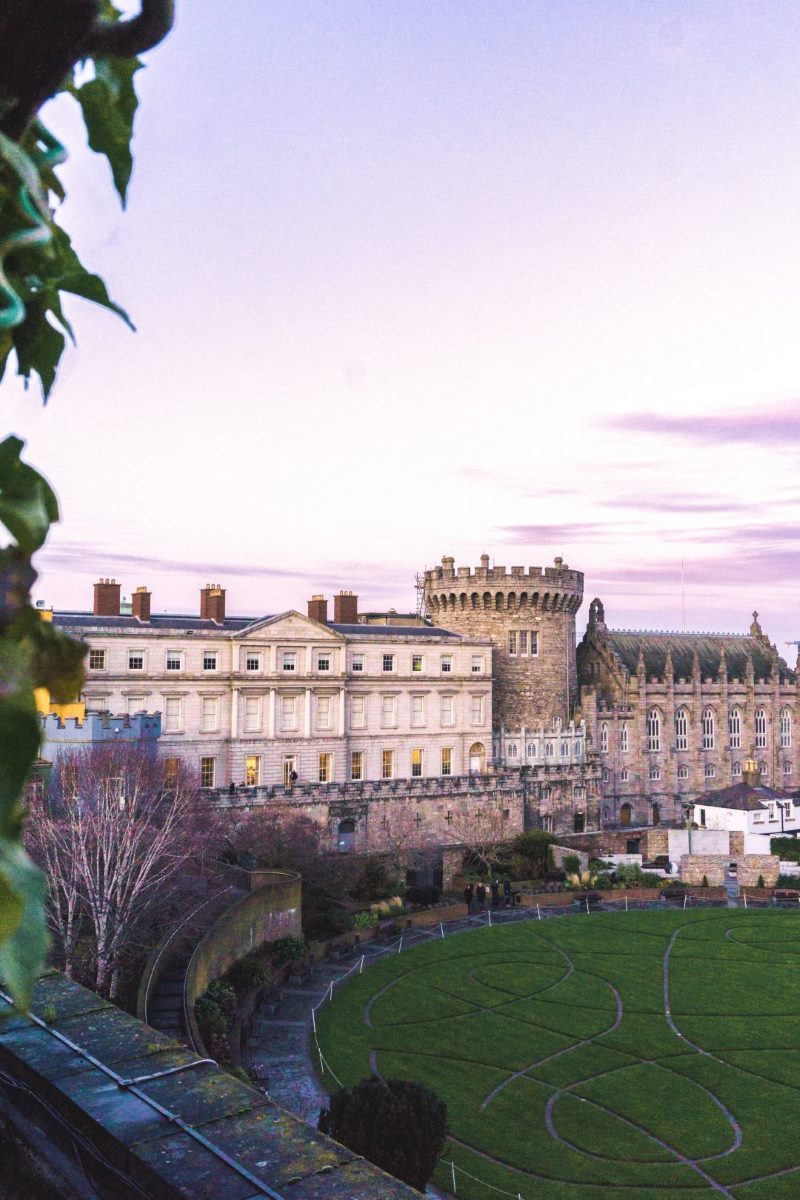
Step into the shoes of a talented detective with an exciting mystery adventure in Dublin’s famous Trinity College. This outdoor game will take you and your friends on a journey to solve the case of a missing professor based on an ancient true crime case while discovering the city center in a unique way. Participate in fun challenges and riddles to unlock clues that will lead you to the final chapter of your investigation. Take a break from the digital world, as this game does not require any digital devices. Please note that this tour is not suitable for children under the age of 13. Digital instructions are provided for the mystery game. Don’t miss out on this chance to channel your inner detective and solve this exciting mystery.
The Most Frequently Asked Questions About Dublin
Dublin is a vibrant city with a rich history, beautiful architecture, and a bustling cultural and social scene. As with any popular tourist destination, there are often many questions that visitors have before they arrive. In this blog post, we’ll address some of the most frequently asked questions about Dublin, providing useful information and tips for anyone planning a visit.1. What’s the Best Time to Visit Dublin?
Dublin has a temperate maritime climate, which means the weather is relatively mild all year round. However, the best time to visit Dublin is during the months of May to September, when the weather is warmer and drier. July and August are the busiest months and accommodation can be more expensive, so booking in advance is recommended. January to March is also a good time to visit, as the city is less crowded and flights and accommodation can be cheaper.2. How Do I Get to Dublin?
Dublin is easily accessible by plane, train, and ferry. Dublin Airport is the main gateway into the city, with direct flights from all over Europe, North America, and beyond. You can also take a train from other parts of Ireland or from the UK, or travel by ferry from the UK, France or Spain.3. What are the Must-See Attractions in Dublin?
Dublin has a wide range of attractions to suit all interests. Some of the most popular must-see sights include:- The Guinness Storehouse: A seven-story museum dedicated to the history of Ireland’s most famous beer.
- The Book of Kells: A beautifully illuminated medieval manuscript dating from the 9th century, housed in Trinity College.
- The National Museum of Ireland: A vast collection of artifacts covering Irish history, culture, and natural history.
- St. Patrick’s Cathedral: One of Ireland’s largest and most famous churches, with a rich history dating back to the 12th century.
- Kilmainham Gaol: A former prison turned museum, where many famous Irish revolutionaries were held and executed.
4. What Should I Eat and Drink in Dublin?
Dublin has a rich culinary culture, with many traditional dishes and drinks to savor. Some of the must-try foods include:- Irish stew: A hearty and warming stew made with lamb or beef, potatoes, and vegetables.
- Coddle: A traditional Dublin dish, made with sausages, bacon, potatoes, and onions.
- Bangers and Mash: Grilled sausages served with creamy mashed potatoes and onion gravy.
5. What’s the Best Way to Get Around Dublin?
Dublin has an extensive public transport network, including buses, trams, and trains. The city center is relatively compact and easy to walk around, so if the weather is good, you can also explore on foot. Taxis are widely available, but can be expensive, so it’s worth checking public transport options first.6. What Should I Wear in Dublin?
Dublin’s weather can be unpredictable, even in summer, so it’s always best to pack for all eventualities. Layering is a good approach, with a waterproof jacket and comfortable walking shoes essential. In winter, you’ll need a warm coat, hat, and gloves, as temperatures can drop quite low.7. What are Some Lesser-Known Things to See and Do in Dublin?
Dublin has many hidden gems and lesser-known attractions to discover. Some of the most interesting include:- The Little Museum of Dublin: A quirky museum exploring the history of Dublin in the 20th century, with exhibits curated by the public.
- St. Michan’s Church: A 12th-century church with a unique crypt containing mummified remains.
- The Dublin Ghost Bus Tour: A spooky evening tour of the city’s most haunted sites, complete with ghost stories and special effects.
Conclusion
Dublin is a wonderful city to visit, with something to offer everyone. Whether you’re interested in history, culture, food, or nightlife, you’re sure to find plenty to enjoy. By following these tips and recommendations, you can make the most of your visit and experience the best of what Dublin has to offer.Dublin, the capital of Ireland, is a city with a long and fascinating history that is steeped in legend and folklore. With such a rich past, it’s no surprise that there are plenty of ghost stories and haunted locations to discover within the city. Taking a ghost tour around Dublin is the perfect way to learn more about the darker side of the city’s heritage while also enjoying a fun and spooky night out. In this post, we’ll be exploring some of the best ghost tours Dublin has to offer. So, grab your coat and get ready to explore the eerie side of the city!
The 2 Best Ghost Tours in Dublin
The 2 Best Ghost Tours in Dublin
1. Gravedigger Ghost Tour

Delve into the darker history of Dublin with this evening gravedigger ghost tour. Led by a local guide, explore haunted sites such as the Bully’s Acre cemetery and Kilmainham Jail. Learn about the devastating effects of the medieval plague and how gravediggers made their fortune by snatching bodies. The tour ends with a ‘ghoulish brew’ at Gravediggers Pub. As a bonus, a free pass for the Haunted Dublin Historical Walking Tour is included. Meeting at Fox House at 7:45 PM, this tour is the perfect way to experience Ireland’s haunted past. Please note that food and drinks are not included unless specified.
2. Murder Mystery Game Trinity College
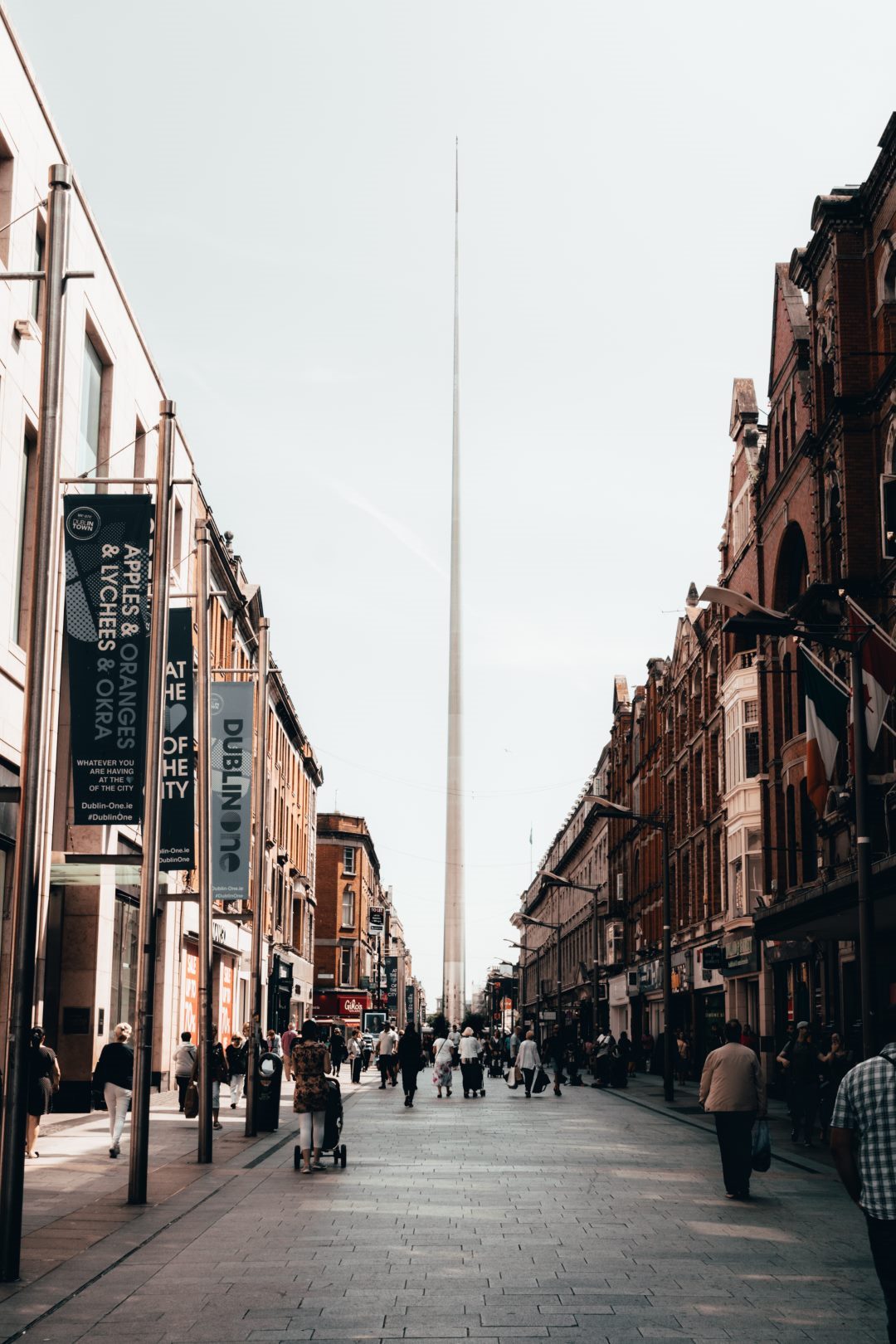
Step into the shoes of a talented detective and experience an exciting murder mystery game at Trinity College in Dublin. Based on an ancient true crime case, you’ll be tasked with solving the case of a missing professor. Explore the city center and enjoy a unique perspective of the famous Trinity College while participating in fun challenges and riddles to unlock clues that will lead you to the final chapter of your investigation. This is the perfect outdoor activity to channel your inner detective and take a break from the digital world with your friends. Please note that this tour is not suitable for children under 13 years of age. Book your experience and get ready for an unforgettable adventure!
The Most Frequently Asked Questions About Dublin
Dublin, the bustling capital of Ireland, is a beloved destination for tourists from around the world. However, planning your trip to this city can often seem a bit overwhelming. To help you navigate the city more effectively, we’ve compiled a list of the most frequently asked questions about Dublin.1. When is the best time to visit Dublin?
The best time to visit Dublin is during the summer months of June, July, and August. This is when the weather is at its warmest and driest, making it more enjoyable to explore the city on foot. However, keep in mind that these are also the busiest months for tourists and prices may be higher.2. Do I need a visa to visit Dublin?
If you’re from the United States, Canada, Australia, or New Zealand, you do not need a visa to visit Dublin as a tourist for up to 90 days. If you’re from a different country, you should check the relevant visa requirements before planning your trip.3. How do I get to Dublin from the airport?
Dublin Airport is about 10km north of the city center, and there are several options for getting to your destination. The easiest and most convenient way is to take a taxi from outside the airport terminal. Alternatively, you can use the Airlink Express bus, which stops at various locations throughout the city. There are also car rental services available at the airport if you prefer to drive yourself.4. What is the currency in Dublin?
The currency in Dublin (and the rest of Ireland) is the Euro. You can exchange money at banks, exchange bureaus or withdraw cash from ATMs.5. What are the must-see attractions in Dublin?
Dublin has a wealth of cultural and historical attractions to explore. Some of the most popular include the Guinness Storehouse, Trinity College, Dublin Castle, St. Patrick’s Cathedral, and the National Museum of Ireland. It’s also worth taking a stroll through the city’s vibrant neighborhoods like Temple Bar and Grafton Street.6. Is Dublin a safe city to visit?
Dublin is generally a safe city to visit, but like any major city, it’s important to be aware of your surroundings and take precautions to protect yourself and your belongings. Avoid walking alone at night in dark or deserted areas, keep your valuables secure, and be wary of pickpockets and scams.7. What is the public transportation like in Dublin?
Dublin has an extensive public transportation network, including buses and the DART (Dublin Area Rapid Transit) train system. A Leap Visitor Card is a great way to explore the city as it gives you unlimited travel on all buses, trains and trams for a set number of days. Taxis can also be found throughout the city, but they can be expensive.8. What is the traditional food and drink of Dublin?
On the food front, traditional Irish cuisine includes favourites like Irish stew, fish and chips, and colcannon (a mashed potato dish with kale or cabbage). For dessert, be sure to try a slice of apple pie or a warm bowl of bread pudding. As for drinks, you can’t visit Dublin without indulging in a pint of the black stuff – Guinness!9. What is the etiquette for tipping in Dublin?
Tipping is not mandatory in Dublin, but it’s always appreciated for good service in restaurants, cafes, and bars. A 10-15% tip is standard if service is good. Tipping for taxis is also optional, but many people round up the fare to the nearest euro.10. What is the weather like in Dublin?
The weather in Dublin can be unpredictable, with frequent changes in rain and sunshine throughout the year. The average temperature in the summer is around 20°C (68°F), while in the winter it can drop to 5°C (41°F) or lower. Be sure to pack layers and a waterproof jacket, no matter what time of year you visit.Conclusion
Dublin is a vibrant and exciting city with plenty to offer visitors. By keeping these frequently asked questions in mind, you should be able to plan your trip with confidence, and be better prepared to make the most of your time in this wonderful city. From the country’s rich history to its bustling culture, there’s truly something for everyone in Dublin.Dublin is a city with a rich history, and as with most historic cities, it has its fair share of ghost stories. Whether you’re a believer or not, taking a ghost tour can be a fun and entertaining way to learn about the city’s darker past. But with so many tours to choose from, it can be difficult to know which one to pick. In this blog post, we’ll explore some of the best ghost tours in Dublin, taking into account the tour guides, the locations covered, and the stories told. Whether you’re a true believer in the supernatural or just looking for a fun night out, there’s sure to be a tour that’ll send shivers down your spine.
The 2 Best Ghost Tours in Dublin
The 2 Best Ghost Tours in Dublin
1. Gravedigger Ghost Tour
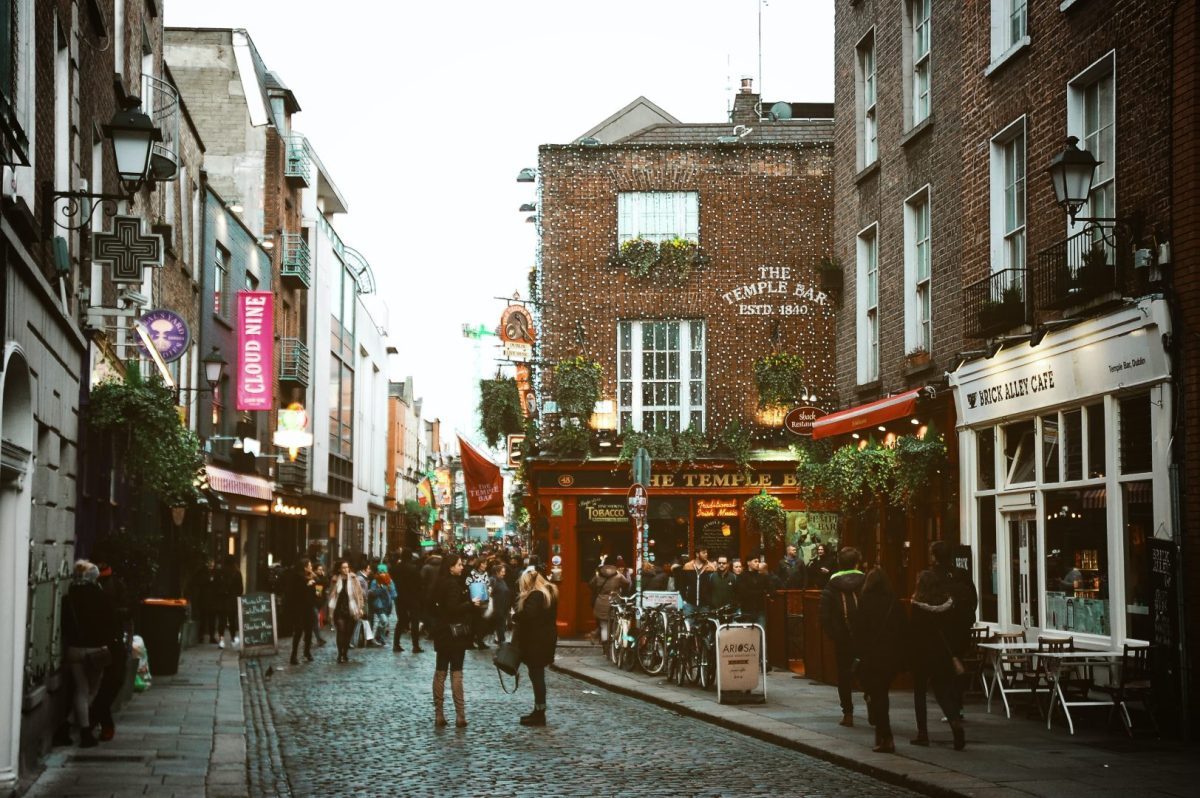
Delve into the darker recesses of Dublin’s haunted history on this evening gravedigger ghost tour. With a local guide, you will learn about the devastating human effect of the medieval plague and visit eerie local sites such as Bully’s Acre and Kilmainham Jail. You will also hear how opportunist gravediggers made a killing on body snatching. Cap it off with a ‘ghoulish brew’ at Gravediggers Pub. This Dublin ghost tour by bus includes a free pass for the ‘Haunted Dublin Historical Walking Tour’ which can be taken separately. The meeting point is at Fox House at 37 College Green Dublin D02 W599 Ireland, and the tour starts at 07:45 PM. The activity will end back at the meeting point. Please note that food and drinks are not included unless specified. Discover Ireland’s haunted past on this thrilling Gravedigger Ghost Tour.
2. Murder Mystery Game Trinity College
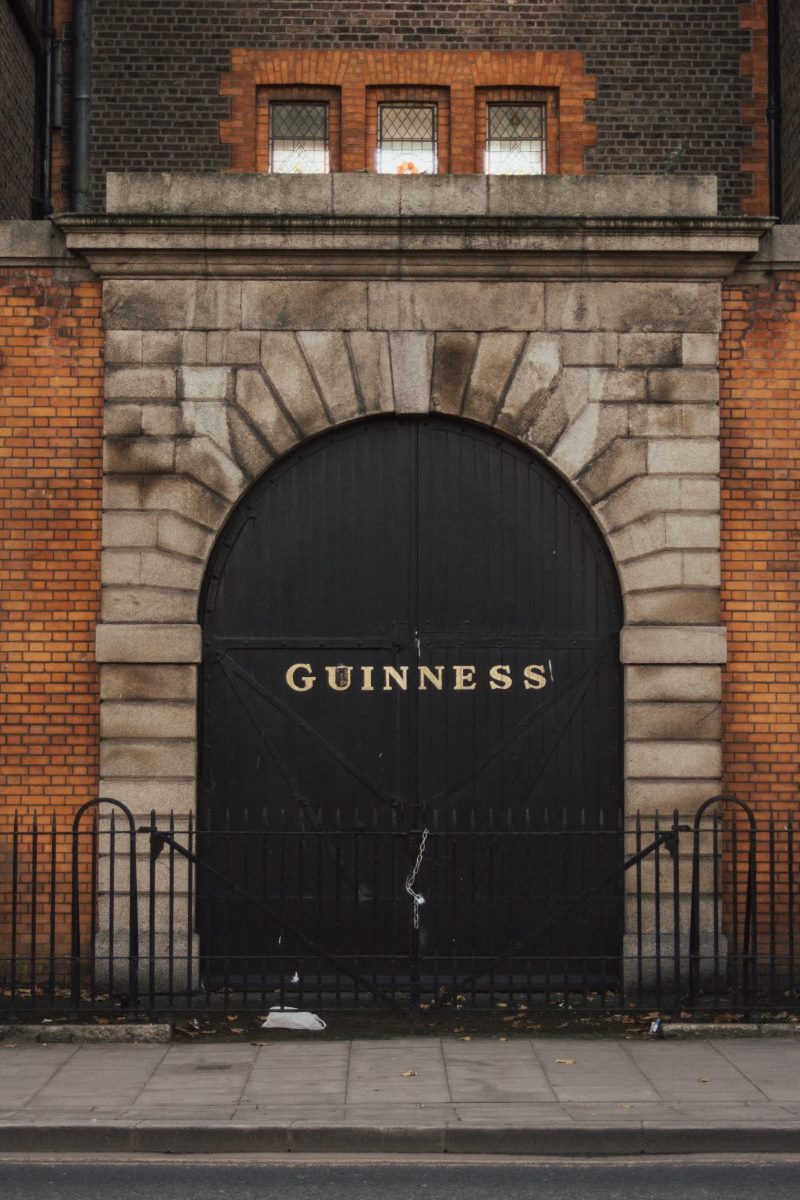
Step into the shoes of a talented detective with the Murder Mystery Game Trinity College tour. Put your detective skills to the test and solve the case of a missing professor based on an ancient true crime case. Explore the city center and Trinity College in a unique way as you participate in fun challenges and riddles to unlock clues that will lead you to the final chapter of your investigation. Play an outdoor game with friends and take a break from the digital world with this exciting experience. Please note that the tour is not suitable for children under 13 years old. Digital instructions will be provided for the game.
The Most Frequently Asked Questions About Dublin
If you’re planning a trip to Dublin, Ireland, you may have a lot of questions about the city. In this blog post, we’ll answer some of the most frequently asked questions about Dublin to help you plan your trip.1) What is Dublin known for?
Dublin is known for many things, including its rich history, vibrant culture, and musical tradition. It is also famous for its pubs, which are an important part of the city’s social scene. Some of the most popular attractions in Dublin include the Guinness Storehouse, Trinity College, and Dublin Castle.2) What is the best time of year to visit Dublin?
The best time of year to visit Dublin is during the summer months, from June to August. During this time, the weather is warm and sunny, and there are many outdoor events and festivals to enjoy. However, this is also the busiest time of year for tourists, so expect larger crowds and higher prices on accommodations.3) How do I get around Dublin?
Dublin has an excellent public transportation system, with buses, trains, and a tram system called the LUAS. Visitors can purchase a Leap Card, which is a convenient way to pay for public transportation. Taxis are also available, but can be more expensive.4) What is the currency in Dublin?
The currency in Dublin, and throughout Ireland, is the Euro. Many shops and restaurants also accept credit cards, but it’s always a good idea to have some cash on hand.5) What should I pack for my trip to Dublin?
When packing for your trip to Dublin, it’s a good idea to bring layers as the weather can be unpredictable. Bring a waterproof jacket, comfortable walking shoes, and an adapter for your electronics as the outlets in Ireland are different from those in North America.6) What is the drinking age in Dublin?
The legal drinking age in Ireland is 18 years old. Visitors should be prepared to show identification if they plan on purchasing alcohol.7) Is it safe to travel to Dublin?
Dublin is generally a safe city, but like any large city, visitors should be aware of their surroundings and take precautions to avoid theft and pickpocketing. It’s also important to note that Dublin can be a noisy city, especially in areas with a lot of nightlife.8) What are the best neighborhoods to explore in Dublin?
Dublin has many diverse neighborhoods to explore, each with their own unique flavor. Some popular neighborhoods include Temple Bar, with its lively bars and restaurants, and St. Stephen’s Green, with its beautiful park and high-end shopping.9) What is the best way to experience the music scene in Dublin?
Dublin’s music scene is legendary, and visitors can experience it in a variety of ways. Traditional Irish music is often performed in pubs throughout the city, while larger venues like the Olympia Theatre host concerts by top performers. There are also many music festivals throughout the year, including the Dublin International Blues, Roots & Brass Festival and the Dublin Irish Festival.10) What are some must-see attractions in Dublin?
There are many must-see attractions in Dublin, including:- The Guinness Storehouse, where visitors can learn about the history of Ireland’s most famous export.
- Trinity College, home to the famous Book of Kells.
- Dublin Castle, a beautiful historic building with beautiful gardens.
- The National Museum of Ireland, which includes exhibits on Irish history and culture.
- The National Gallery of Ireland, which displays a collection of Irish and European art.
Conclusion
Dublin is a fascinating city with much to see and do. Hopefully, this blog post has answered some of the most frequently asked questions about the city, so you can plan a fun, safe, and enjoyable trip. Remember to bring layers, comfortable shoes, and an open mind to make the most of your time in Dublin.Dublin, the capital of Ireland, has a rich and haunting past, with numerous tales of ghosts, ghouls, and the supernatural. It’s no wonder that ghost tours have become a popular way for locals and tourists alike to explore the dark and mysterious side of the city. With so many tour options available, it can be overwhelming to decide which ones to choose. In this post, we’ll take a closer look at some of the best ghost tours in Dublin that are sure to send shivers down your spine. Whether you’re a history buff, a lover of the macabre, or simply looking for a unique way to experience the city, these tours are not to be missed.
The 2 Best Ghost Tours in Dublin
The 2 Best Ghost Tours in Dublin
1. Gravedigger Ghost Tour

Delve into Dublin’s haunting history on this gravedigger ghost tour. Led by a local guide, you’ll journey into the darker recesses of Ireland’s past, visiting eerie sites like Bully’s Acre and Kilmainham Jail. Learn about the devastating effects of the medieval plague and hear how the opportunistic gravediggers capitalized on body snatching. Cap off the tour with a ‘ghoulish brew’ at Gravediggers Pub. This Dublin ghost tour by bus is not for the faint-hearted. Encounter the supernatural and explore Ireland’s haunted past. A free pass for the ‘Haunted Dublin Historical Walking Tour’ is included so you can keep exploring the fascinating haunted side of Dublin long after the tour is over. Don’t miss out on this chilling experience. The meeting point is the Fox House at 37 College Green, Dublin. The tour starts at 7:45 PM and ends back at the same location. Food and drinks are not included unless specified.
2. Murder Mystery Game Trinity College

Step into the shoes of a talented detective and embark on an exciting mystery adventure in Dublin with this immersive Murder Mystery Game. Based on an ancient true crime case, your mission is to solve the disappearance of a professor. The game takes you on a journey through the city center, including the world-famous Trinity College, all while participating in fun challenges and riddles to unlock clues that will aid in your investigation. This outdoor activity provides a unique opportunity to take a break from the digital world and engage with friends in a thrilling detective story. Please note that this activity is not suitable for children under 13 years. The game includes digital instructions to guide you through your investigation. Join the fun now and channel your inner detective!
Frequently Asked Questions About Dublin
Dublin is the capital city of Ireland, famous for its rich history, vibrant nightlife, and cultural attractions. It’s a popular destination for tourists from all over the world. If you’re planning a trip to Dublin, you probably have lots of questions. In this post, we’ll answer the most frequently asked questions about Dublin to help you plan your visit.What’s the best time to visit Dublin?
Dublin is a great city to visit all year round, but the best time to visit depends on your preferences. Summer (June to August) is the most popular time to visit Dublin, with warmer weather and longer days. However, it’s also the busiest time of year, and prices for accommodation and attractions can be higher. Spring (March to May) and autumn (September to November) are also great times to visit, with fewer crowds and lower prices. Winter (December to February) can be cold and wet, but it’s a great time to enjoy Dublin’s festive atmosphere during the Christmas season.What are some must-see attractions in Dublin?
Dublin has a wealth of unique and interesting attractions to explore. Some of the must-see attractions in Dublin include:- The Guinness Storehouse – a museum and brewery where you can learn about the history of Guinness and enjoy a pint with a panoramic view of the city.
- Trinity College – Ireland’s oldest and most prestigious university, home to the famous Book of Kells.
- St. Patrick’s Cathedral – an impressive Gothic cathedral and the largest church in Ireland.
- Dublin Castle – a historic castle complex that was once the seat of British rule in Ireland.
- The National Museum of Ireland – a collection of four museums that showcase Ireland’s rich history and culture.
What’s the nightlife like in Dublin?
Dublin is famous for its lively pub culture and thriving nightlife. There are plenty of pubs and bars to choose from, ranging from traditional Irish pubs to trendy cocktail bars. Some of the best areas for nightlife in Dublin include Temple Bar, Camden Street, and Harcourt Street. If you’re looking for live music, you can find it in many pubs and music venues around the city.What’s the food like in Dublin?
Dublin has a diverse and exciting food scene, with plenty of options for all tastes and budgets. Traditional Irish food includes dishes like Irish stew, fish and chips, and soda bread. However, there are also plenty of international cuisine options available, with Dublin’s restaurant scene ranging from Italian and Indian to Vietnamese and Mexican. In recent years, there has been a rise in the popularity of vegan and vegetarian food in Dublin, so there are plenty of options for plant-based eaters too.How do I get around Dublin?
Dublin has a good public transportation system, with an extensive network of buses, trams, and trains. The bus system is the most extensive, with buses running throughout the city and suburbs. The tram system, called the Luas, has two lines that connect the city center with the suburbs. The DART is a train service that runs along the coastline, connecting the city with coastal towns and villages. Taxis and ride-sharing services like Uber are also widely available.What’s the weather like in Dublin?
Dublin has a temperate maritime climate, with mild winters and cool summers. It can be rainy at any time of year, so be sure to pack an umbrella and raincoat. During the winter months, temperatures can drop to around 5°C (41°F) and it can be quite windy. In the summer, temperatures can reach around 20°C (68°F), but it can still be quite cool and overcast.What’s the currency in Dublin?
The currency in Dublin, and throughout Ireland, is the Euro (€). Most places will accept credit and debit cards, but it’s a good idea to have some cash on hand for smaller transactions and tips.Is English the only language spoken in Dublin?
English is the primary language spoken in Dublin, but Irish (Gaeilge) is also an official language of Ireland. You may hear Irish spoken in some areas of the city, and all road signs and official documents are bilingual in both English and Irish. However, you don’t need to speak Irish to get by in Dublin, as everyone speaks English.Dublin is a city steeped in history, with tales of ghosts and haunted places lurking around every corner. Taking a ghost tour is the perfect way to delve into the darker side of Dublin’s past, while also getting a unique and thrilling perspective on the city’s streets and buildings. If you’re looking for some bone-chilling fun or a unique way to experience Dublin, join us as we explore the best ghost tours in Dublin. From spooky castles to haunted graveyards, these tours are sure to send shivers down your spine.
The 2 Best Ghost Tours in Dublin
The 2 Best Ghost Tours in Dublin
1. Gravedigger Ghost Tour

Delve into the dark and eerie world of Dublin’s haunted past with this thrilling gravedigger ghost tour. Led by a local guide, you’ll learn about the devastating impact of the medieval plague, visit chilling sites like Bully’s Acre cemetery and Kilmainham Jail, and hear how gravediggers made a profit by snatching bodies from their final resting places. Afterwards, enjoy a ‘ghoulish brew’ at Gravediggers Pub. This bus tour also includes a free pass for the ‘Haunted Dublin Historical Walking Tour.’ Don’t miss out on exploring Ireland’s haunted history on this spine-chilling adventure. The meeting point is at Fox House, and the start time is 07:45 PM, with the activity ending back at the original location. Please note that food and drinks are not included, unless specified.
2. Murder Mystery Game Trinity College
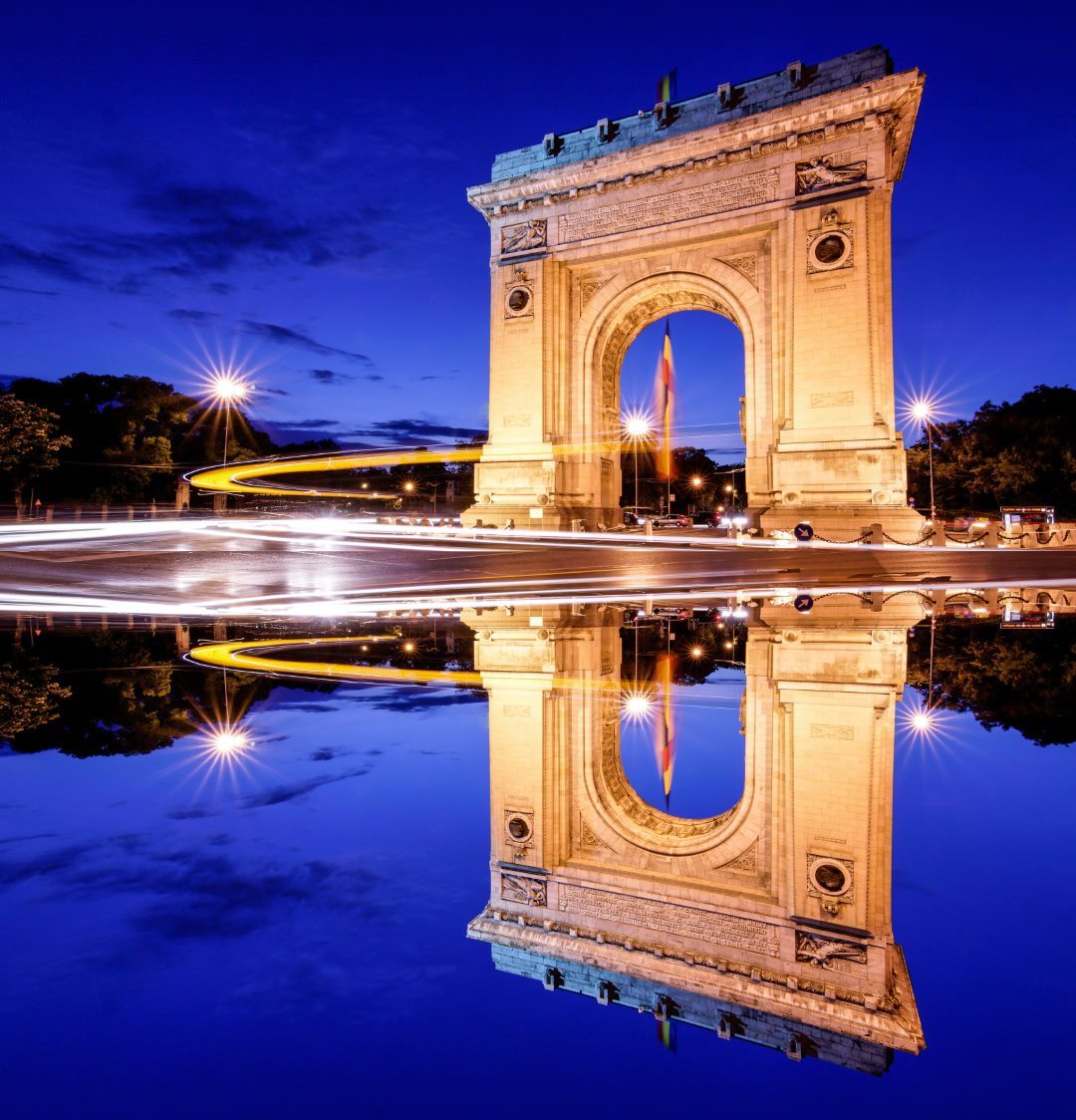
Step into the shoes of a talented detective during the Murder Mystery Game Trinity College tour and embark on a unique adventure to solve a mystery case. Located in the heart of Dublin, this outdoor game takes you to the famous Trinity College to participate in fun challenges and riddles that will unlock clues to help you solve the case of a missing professor. Based on an ancient true crime case, this mystery adventure will challenge you and your friends to channel your inner detective skills as you travel back to 1899. Leave the digital world behind and experience a thrilling and exciting way to explore the city center while playing a fun game with friends. Please note that this tour is not suitable for children under 13. All instructions for the game will be provided digitally.
The Most Frequently Asked Questions About Dublin
Dublin is a vibrant and historic city that attracts millions of visitors every year. It is the capital city of Ireland and is known for its rich history, friendly people, and bustling nightlife. As a popular tourist destination, people have many questions about Dublin before they visit. In this blog post, we will answer some of the most frequently asked questions about Dublin.1. What is the best time to visit Dublin?
The best time to visit Dublin is during the summer months of June, July, and August when the weather is mild, and there are many festivals and events happening in the city. However, it is also the busiest time of year, and prices for accommodation and flights can be high. If you want to avoid the crowds and save some money, consider visiting in the shoulder seasons of April and May or September and October.2. What are the must-see sights in Dublin?
There are many must-see sights in Dublin, but some of the most popular include:- The Guinness Storehouse
- Trinity College and the Book of Kells
- St. Patrick’s Cathedral
- The Dublin Castle
- Kilmainham Gaol Museum
- The National Museum of Ireland
3. How can I get around Dublin?
Dublin has an extensive public transportation system, including buses, trams, and trains. The most convenient and cost-effective way to get around the city is by using a LEAP Card, which is a rechargeable smartcard that can be used on all modes of public transportation. Taxis and Uber are also available, but they can be expensive, especially during peak hours.4. What is the nightlife like in Dublin?
Dublin is known for its lively nightlife, with many pubs, bars, and clubs open until the early hours of the morning. Temple Bar is one of the most popular areas for nightlife, with live music and entertainment every night. However, it can be very crowded and touristy, so consider exploring some of the other districts, such as Rathmines, which has a more local and authentic vibe.5. What should I eat and drink in Dublin?
Dublin has a rich culinary scene, with many traditional and modern Irish dishes to try. Some of the must-try foods and drinks in Dublin include:- Fish and Chips
- Irish Stew
- Guinness
- Irish Whiskey
- Brown Bread
- Boxty (traditional Irish potato pancakes)
6. What is the weather like in Dublin?
Dublin has a mild and temperate climate, with cool summers and mild winters. The average temperature in the summer months is around 20°C (68°F), while winter temperatures average around 8°C (46°F). It can be quite rainy in Dublin, so make sure to pack a waterproof jacket and umbrella.7. Is Dublin an expensive city?
Dublin can be an expensive city, especially when it comes to accommodation and dining out. However, there are many budget-friendly options available, such as hostels, street food vendors, and local pubs. If you are on a tight budget, consider visiting during the shoulder seasons, when prices are lower, or staying in a nearby town and taking public transportation into the city.8. What is the history of Dublin?
Dublin has a rich and diverse history that dates back to Viking times. The city was founded by the Vikings in the 9th century and was later ruled by the Normans and the British. Dublin played an important role in the struggle for Irish independence, and many significant historical events took place in the city. Today, visitors can explore Dublin’s fascinating history by visiting many of the city’s museums and historical attractions.In conclusion, Dublin is a vibrant and exciting city to visit, with something for everyone to enjoy. By answering these frequently asked questions, we hope to make your trip to Dublin more comfortable and enjoyable.Welcome to Dublin, the city of ghosts! If you are a fan of spine-tingling stories and paranormal encounters, then you are in the right place. Dublin is renowned for its haunted history and walking through its streets without hearing eerie whispers and ghostly moans is virtually impossible. Therefore, to help you make the most of your visit, we have put together a list of the best ghost tours in the city that will take you on a spine-chilling journey through the city’s most haunted spots. Are you ready to discover the dark side of Dublin? Let’s dive in!
The 2 Best Ghost Tours in Dublin
The 2 Best Ghost Tours in Dublin
1. Gravedigger Ghost Tour

Delve into the darker side of Dublin’s haunted history on this gravedigger ghost tour. Accompanied by a knowledgeable guide, explore chilling sites such as Bully’s Acre and Kilmainham Jail and hear tales of the medieval plague and body-snatching gravediggers. The tour concludes with a visit to the Gravediggers Pub for a “ghoulish brew.” This tour is a must-do for anyone interested in Ireland’s haunted past. A free pass for the “Haunted Dublin Historical Walking Tour” is also included. Don’t miss out on the spine-tingling experience! Meeting point is at Fox House, and the tour starts at 07:45 PM. No food or drinks are included unless specified otherwise. The activity ends at the starting point.
2. Murder Mystery Game Trinity College

Step into the shoes of a talented detective and experience a unique adventure with the Murder Mystery Game in Trinity College. Travel back in time to 1899 and solve the case of a missing professor, based on an ancient true crime case. Explore the city center and the beautiful Trinity College while participating in fun challenges and riddles. This outdoor game will let you take a break from the digital world and enjoy a thrilling detective story with friends or family. Please note that this activity is not suitable for children under 13 years. Get ready to channel your inner detective and have an unforgettable time in Dublin.
The Most Frequently Asked Questions About Dublin
Dublin is a beautiful city that attracts millions of tourists from all over the world every year. It’s the capital of Ireland and has a rich history and culture. In this blog post, we’ll answer some of the most frequently asked questions about Dublin to help you plan your trip and make the most of your stay.1. What is the best time to visit Dublin?
The best time to visit Dublin is during the months of May to September when the weather is mild, and the days are longer. The city gets very crowded during the summer months, especially in August when the Dublin Horse Show and Tall Ships Race take place. If you’re on a tight budget, it’s best to visit Dublin during the off-season when airfares and hotel rates are lower.2. What are the must-see attractions in Dublin?
Dublin is famous for its rich history and cultural heritage, and there are many must-see attractions that you shouldn’t miss. Some of these include:- Guinness Storehouse
- Dublin Castle
- Trinity College
- St. Patrick’s Cathedral
- Kilmainham Gaol
- Temple Bar
3. Is it easy to get around Dublin?
Yes, getting around Dublin is easy as the city has an extensive public transportation system that includes buses, trams, and trains. The Dublin Bus is the most popular mode of transport for tourists, and it covers all major attractions in the city. The Leap Visitor Card is an excellent option if you plan to use public transport frequently during your stay.4. What is the currency used in Dublin?
The currency used in Dublin is the Euro (€). Most shops, restaurants, and hotels accept credit and debit cards, but it’s always a good idea to carry some cash with you.5. Do I need a visa to visit Dublin?
If you’re a citizen of the European Union, you don’t need a visa to visit Dublin. Citizens of some countries, including the United States, Canada, and Australia, can stay in Ireland for up to 90 days without a visa. If you’re a citizen of a country that requires a visa, you’ll need to apply for one before you can travel to Dublin.6. What is the weather like in Dublin?
The weather in Dublin is mild throughout the year, but it can be unpredictable. Summers are usually warm, with temperatures averaging around 20°C (68°F), while winters are cold and wet, with temperatures averaging around 5°C (41°F). It’s always a good idea to check the weather forecast before you travel to Dublin, particularly in the winter months.7. What are the best places to eat in Dublin?
Dublin has a thriving food scene, with many excellent restaurants, cafes, and pubs serving traditional Irish cuisine as well as international dishes. Some of the best places to eat in Dublin include:- The Woollen Mills
- The Winding Stair
- The Pig’s Ear
- The Merrion Hotel
- The Greenhouse
- The Fumbally
8. Is it safe to travel to Dublin?
Yes, Dublin is generally a safe city to travel to, but like any other major city, it’s important to exercise caution and be aware of your surroundings. Pickpocketing and other petty crimes can occur, particularly in busy tourist areas, so it’s recommended that you keep your valuables safe at all times.9. What are the best shopping areas in Dublin?
If you’re a shopaholic, you’ll love Dublin’s many shopping areas. Some of the best places to shop in Dublin include:- Grafton Street
- Powerscourt Centre
- Brown Thomas
- George’s Street Arcade
- Dundrum Town Centre
10. What is the nightlife like in Dublin?
Dublin has a lively nightlife scene, and there’s no shortage of bars, pubs, and nightclubs to visit. Some of the best places to go for a night out in Dublin include:- The Temple Bar
- The Bernard Shaw
- Coppers
- Whelan’s
- The Workman’s Club
- The Button Factory
Conclusion
Dublin is a vibrant and exciting city with a rich history and culture. There are many things to see and do in Dublin, and we hope this blog post has helped answer some of your most frequently asked questions. Remember to plan your trip carefully, and don’t forget to explore all that Dublin has to offer!Are you ready for a spine-tingling adventure through the streets of Dublin? With its rich history and dark past, Dublin offers some of the best ghost tours in the world. From haunted castles to eerie graveyards, these tours will take you on a journey through Dublin’s paranormal past. Join us as we explore the top-rated ghost tours in Dublin, perfect for those seeking a chillingly good time. Get ready to feel the goosebumps and maybe even encounter a ghost or two.
The 2 Best Ghost Tours in Dublin
The 2 Best Ghost Tours in Dublin
1. Dublin: Murder Mystery Game by Trinity College

Step into the shoes of a talented detective with an exciting murder mystery game in Dublin. Get ready to take part in unique tasks and solve the case of a missing professor based on an ancient true crime case. The game takes place in the beautiful Trinity College and will lead you through the city center in a fun and unique way. Participate in challenges and riddles to unlock clues that will take you to the final chapter of your investigation. This is a great opportunity to take a break from the digital world and play an outdoor game with friends. Note that this tour is not suitable for children under the age of 13. You will receive digital instructions and all the necessary equipment to fully enjoy this fun adventure. Get ready to channel your inner detective and discover Dublin in a new and exciting way!
2. Dublin Gravedigger Ghost Tour
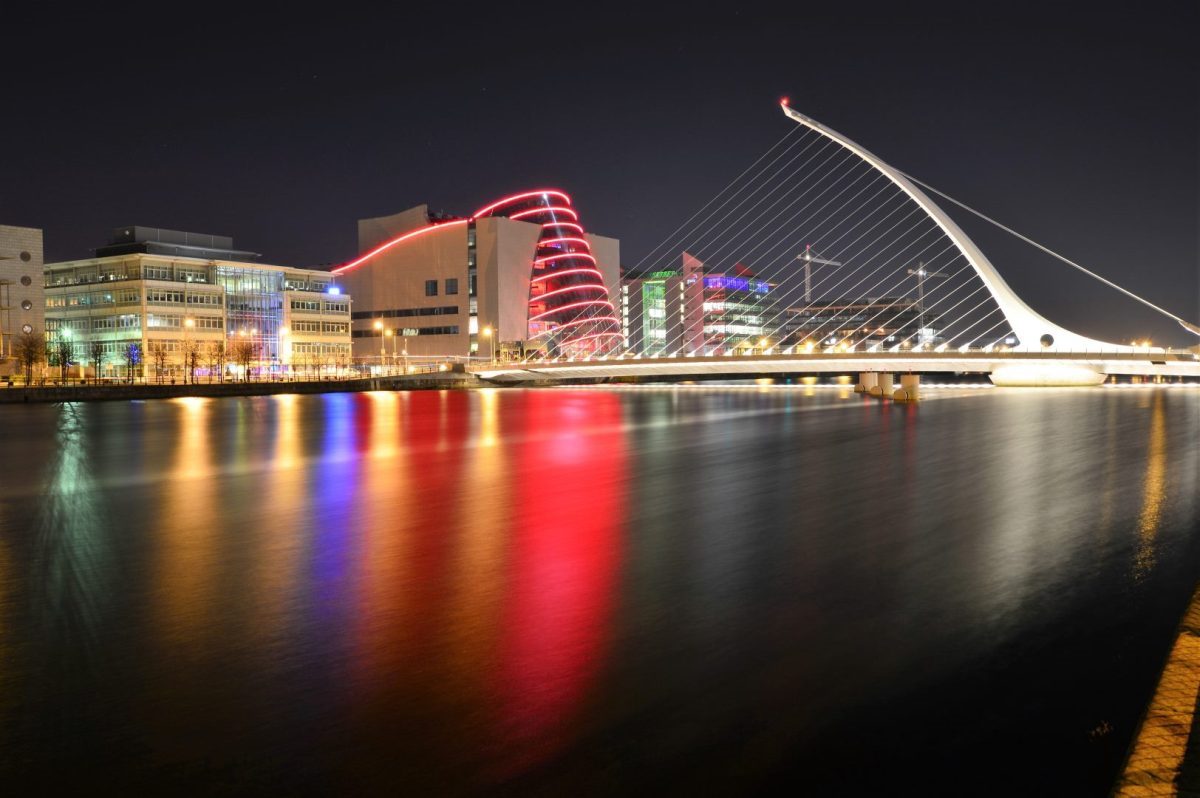
Delve into the darker side of Dublin’s haunted history on this evening gravedigger ghost tour. With a local guide, learn about the devastating human effect of the medieval plague and visit eerie local sites such as Bully’s Acre and Kilmainham Jail. Hear how opportunist gravediggers made a killing (so to speak) on body snatching. Cap it off with a ‘ghoulish brew’ at Gravediggers Pub. This Dublin ghost tour by bus is a great way to discover Ireland’s haunted past. You’ll have the chance to visit the chilling Bully’s Acre cemetery and learn how watchmen witnessed gravediggers in action. Listen to accounts of strange occurrences witnessed at Kilmainham Jail. Your ticket includes a free pass for the ‘Haunted Dublin Historical Walking Tour’ (taken separately). Don’t miss the chance to experience one of the best ghost tours in Dublin. The meeting point is at Fox House, 37 College Green Dublin D02 W599 Ireland, and the tour starts at 07:45 PM. The activity ends back at the starting point. Note that food and drinks are not included unless specified.
Most Frequently Asked Questions About Dublin
Dublin is the capital city of the Republic of Ireland and one of the most vibrant and bustling cities in Europe. For centuries, Dublin has been a hub of culture, history, literature, and music. With so much to discover, visitors often have a lot of questions about the city. Here are some of the most frequently asked questions about Dublin:1. What’s the Best Time to Visit Dublin?
Dublin has a maritime climate, which means that it can rain at any time of the year. However, the best time to visit Dublin is between May and September when the weather is mild and the days are longer. During this period, the city hosts many outdoor events, including music festivals, food and beer festivals, and street performances.2. What are the Must-See Attractions in Dublin?
Dublin is home to many iconic landmarks and attractions that attract millions of visitors each year. Some of the must-see attractions in Dublin include:- The Guinness Storehouse
- Trinity College and the Book of Kells
- St. Patrick’s Cathedral
- Kilmainham Gaol
- The National Museum of Ireland
- The Jameson Distillery
- The Dublin Zoo
3. How can I Get Around Dublin?
Dublin is a compact city, and most of the main attractions can be reached on foot. However, if you prefer to use public transport, Dublin has an extensive bus and tram network, as well as a suburban rail system. The best way to get around Dublin is by purchasing a Leap Card, which is a rechargeable travel card that can be used on all modes of public transport.4. What’s the Nightlife like in Dublin?
Dublin is famous for its lively and vibrant nightlife, with many pubs and bars staying open until late. Some of the best places to experience Dublin nightlife include Temple Bar, Camden Street, and the areas around Grafton Street and St. Stephen’s Green. In these areas, you’ll find a variety of pubs, clubs, and music venues that cater to all tastes.5. What’s the Food and Drink Scene like in Dublin?
Dublin has a vibrant food and drink scene, with many restaurants serving traditional Irish cuisine, as well as international dishes. Some of the popular dishes in Dublin include fish and chips, stews, and hearty breakfasts. When it comes to drinks, Dublin is famous for its Guinness stout, and you can visit the Guinness Storehouse to learn more about the history and brewing process.6. How Safe is Dublin?
Dublin is generally a safe city, but like any big city, it’s always a good idea to take precautions. In tourist areas, pickpocketing can be a problem, so it’s essential to keep an eye on your belongings. It’s also best to avoid walking alone late at night, especially in less populated areas. Overall, Dublin is a friendly and welcoming city that’s well worth a visit.7. What’s the Currency used in Dublin?
The currency used in Dublin is the Euro (EUR). Most shops, restaurants, and other businesses accept credit and debit cards, but it’s always a good idea to have some cash on hand, especially for smaller purchases.Conclusion
Dublin is a city full of history, culture, and fun, and there’s always something to discover. Whether you’re interested in literature, music, food, or architecture, Dublin has something to offer. By knowing the answers to these frequently asked questions, you can make the most out of your trip to Dublin and experience all that this vibrant city has to offer.Dublin, Ireland, is a city steeped in history and haunted by stories of the supernatural. From tales of cursed castles to tales of the undead wandering the city streets, there are enough ghost stories in Dublin to chill your bones. Ghost tours are a perfect way to experience the city’s dark and mysterious past while getting a glimpse of Dublin’s present. We’ve rounded up the best ghost tours in Dublin that will take you on an eerie adventure through the city’s most haunted locations. Get ready to experience the spine-tingling thrill of the supernatural as we explore the best ghost tours Dublin has to offer.
The 2 Best Ghost Tours in Dublin
The 2 Best Ghost Tours in Dublin
1. Dublin: Murder Mystery Game by Trinity College
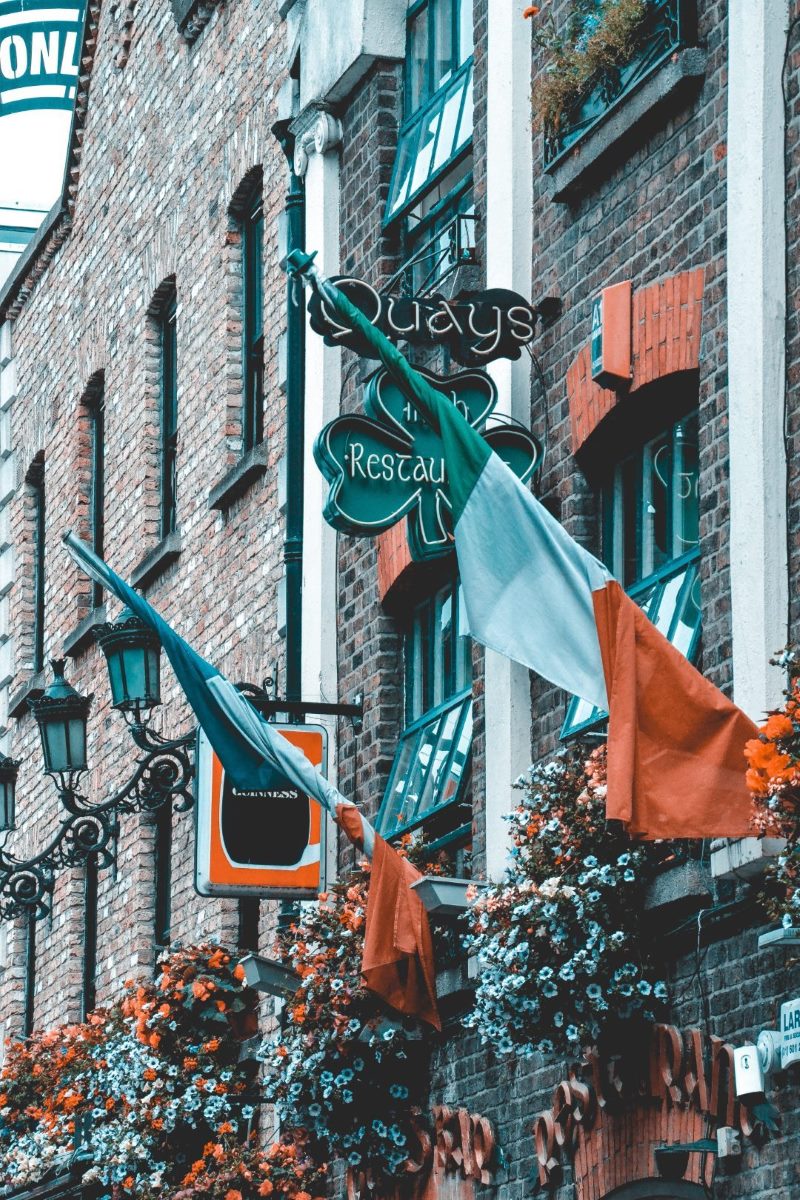
Step into the shoes of a talented detective with an exciting mystery adventure in Dublin, solving the case of a missing professor based on an ancient true crime case. This unique tour lets you discover the city center and its famous Trinity College while participating in fun challenges and riddles to reach the final chapter of the game. You can take a break from the digital world and play an outdoor game with friends, channeling your inner detective and unleashing your creative problem-solving abilities. The tour includes a mystery game and digital instructions, making it a perfect activity for those who want to experience a different side of Dublin. Please note that the tour is not suitable for children under 13 years. Don’t miss the chance to explore Dublin in a unique and thrilling way with the Murder Mystery Game by Trinity College.
2. Dublin Gravedigger Ghost Tour

Delve into Dublin’s haunted history with an evening gravedigger ghost tour that will take you to some of the city’s most eerie sites. Accompanied by a local guide, uncover the human toll of the medieval plague and hear about the gravediggers who took advantage by body snatching. Visit the chilling Bully’s Acre cemetery, where watchmen witnessed gravediggers in action, and hear about strange occurrences witnessed at Kilmainham Jail. End the tour at Gravediggers Pub with a ‘ghoulish brew.’ But that’s not all – the tour includes a free pass to the ‘Haunted Dublin Historical Walking Tour’ to continue your exploration of the city’s haunted past. The meeting point is Fox House on College Green, and the tour starts at 07:45 PM. Food and drinks are not included unless specified.
Frequently Asked Questions About Dublin
Dublin, the capital of Ireland, is a city that is full of history, culture, and charm. With so much to see and do, it’s no wonder that Dublin is a popular travel destination. Whether you’re planning a trip to Dublin or simply interested in learning more about the city, we’ve compiled some of the most frequently asked questions about Dublin.1. What is the best time to visit Dublin?
The best time to visit Dublin is during the summer months of June, July, and August. The weather during these months is usually mild and pleasant, with temperatures averaging around 68°F (20°C). However, it’s important to note that this is also the busiest time of year for tourists, so you may want to plan your trip accordingly. If you prefer quieter or more affordable travel, consider visiting in the spring or fall months.2. What are some must-see sights in Dublin?
Dublin is home to a variety of historic and cultural attractions, including:- The Guinness Storehouse: This seven-story building is home to the Guinness Brewery and offers tours, tastings, and panoramic views of the city.
- Trinity College: Founded in 1592, Trinity College is Ireland’s oldest university and boasts a beautiful campus and impressive library.
- Dublin Castle: This medieval fortress served as the seat of British rule in Ireland for over 700 years and is now a major tourist attraction.
- The Book of Kells: This intricately decorated manuscript from the 9th century is housed in the Old Library at Trinity College and is regarded as one of Ireland’s national treasures.
- St. Patrick’s Cathedral: This beautiful cathedral is the largest church in Ireland and is said to be the final resting place of St. Patrick himself.
3. What are some traditional Irish foods to try in Dublin?
Dublin is known for its hearty and delicious cuisine, including:- Irish stew: This classic dish is made with lamb, potatoes, carrots, and onions and is sure to warm you up on a chilly day.
- Coddle: This traditional Dublin dish consists of sausages, bacon, potatoes, and onions cooked in a broth.
- Boxty: This potato pancake is a popular Irish breakfast food and can be served with a variety of toppings.
- Soda bread: This crusty bread is made with flour, baking soda, salt, and buttermilk and is a staple in Irish cuisine.
- Bangers and mash: This dish consists of sausages and mashed potatoes and is often served with gravy.
4. What is the nightlife like in Dublin?
Dublin is known for its lively and vibrant nightlife scene, with plenty of pubs, bars, and clubs to choose from. Some popular nightlife spots in Dublin include:- The Temple Bar: This iconic pub is located in the heart of Dublin’s Temple Bar district and is known for its live music and bustling atmosphere.
- Whelan’s: This live music venue has hosted some of Ireland’s top musicians and is a must-visit spot for music lovers.
- Coppers: This popular nightclub is known for its energetic atmosphere and diverse crowd.
- The Brazen Head: This historic pub dates back to 1198 and is said to be the oldest pub in Ireland.
5. What is the transportation like in Dublin?
Dublin has an extensive public transportation system, including buses, trains, and the Luas tram. The Leap Card is a popular option for visitors, as it allows you to easily and affordably use all modes of public transit. Taxis are also readily available, but can be more expensive than public transportation. If you prefer to walk, Dublin is a relatively compact city, and many attractions are within walking distance of each other.Table of Contents
